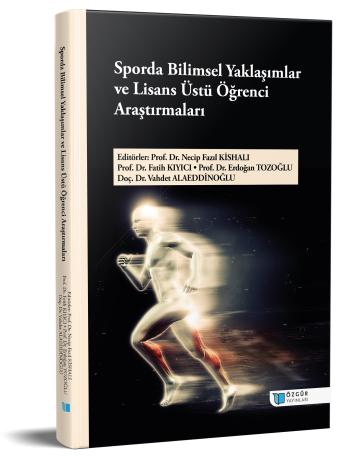
Studies on Children’s Games in Preschool Education Programs
Chapter from the book:
Kishalı,
N.
F.
&
Kıyıcı,
F.
&
Tozoğlu,
E.
&
Alaeddinoğlu,
V.
(eds.)
2023.
Scientific Approaches in Sport and Postgraduate Student Research.
Synopsis
Regardless of the conditions and circumstances in which children willingly participate, play is the main occupation that contributes to physical, motor, sensory, mental and language development, which they cannot give up, and learn the rules within the rules. Child and play are intertwined. Play has always had a priority in children's lives and has continued to provide children with new experiences and roles, to understand and adapt to the area in which they are located. In recent years, countries attach great importance to Physical Education and Sports courses in schools and develop in-service training programmes to develop programmes in this direction. Especially in pre-school education programmes, new game concepts for children are introduced to develop and combine the existing education curriculum. When this is the case, development is the subject of many scientific researches in the literature.
Each new education programme creates difficulties with the orientation process. However, if these programmes are felt by educators and put into practice, the success of the programmes will increase exponentially. The success index will also provide a great equal opportunity for children to be better prepared for future generations. In addition, since it supports children psychologically, physiologically and psychomotor developmentally, it will ensure the growth of healthier individuals.

